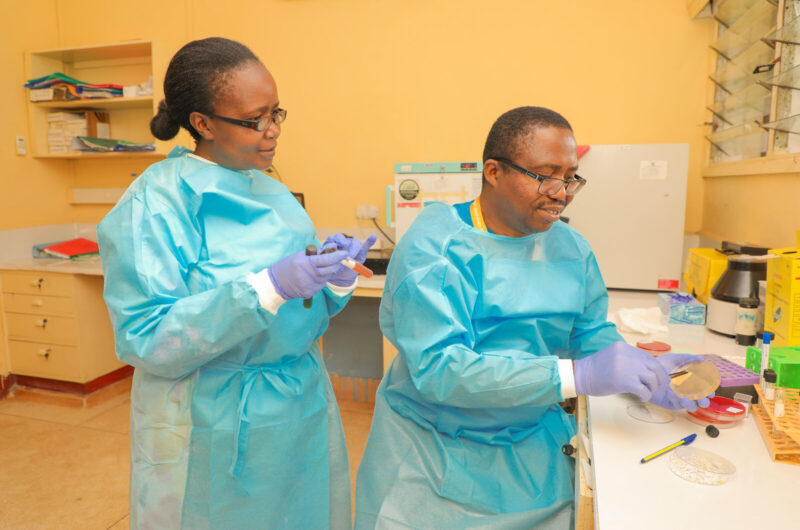Wanaemi Allison is a clinical scientist in the Microbiology Department at Norfolk & Norwich University Hospitals NHS Foundation Trust. He spent a month in Kenya as part of the Kakamega-Cambridge Health Partnership sharing his skills and experience to help to improve antimicrobial stewardship practices.
“I am acutely aware of global health inequalities and the challenges faced by low- and middle-income countries where healthcare is relatively poorly resourced. I have always wanted to help bridge the gap between practices in LMIC countries and the target international standard, using the knowledge, skills and experience I have acquired over the years in my practice.
For this month-long visit I was based at Kakamega County Teaching and Referral Hospital (KCTRH) and my goal was to strengthen clinical, laboratory and diagnostic capability. This meant increasing the understanding of antimicrobial resistance, optimising laboratory and infection prevention control (IPC) practices, improving antimicrobial prescribing, speeding up sepsis diagnosis and management, and generally improving practices to enable the responsive management of patients.
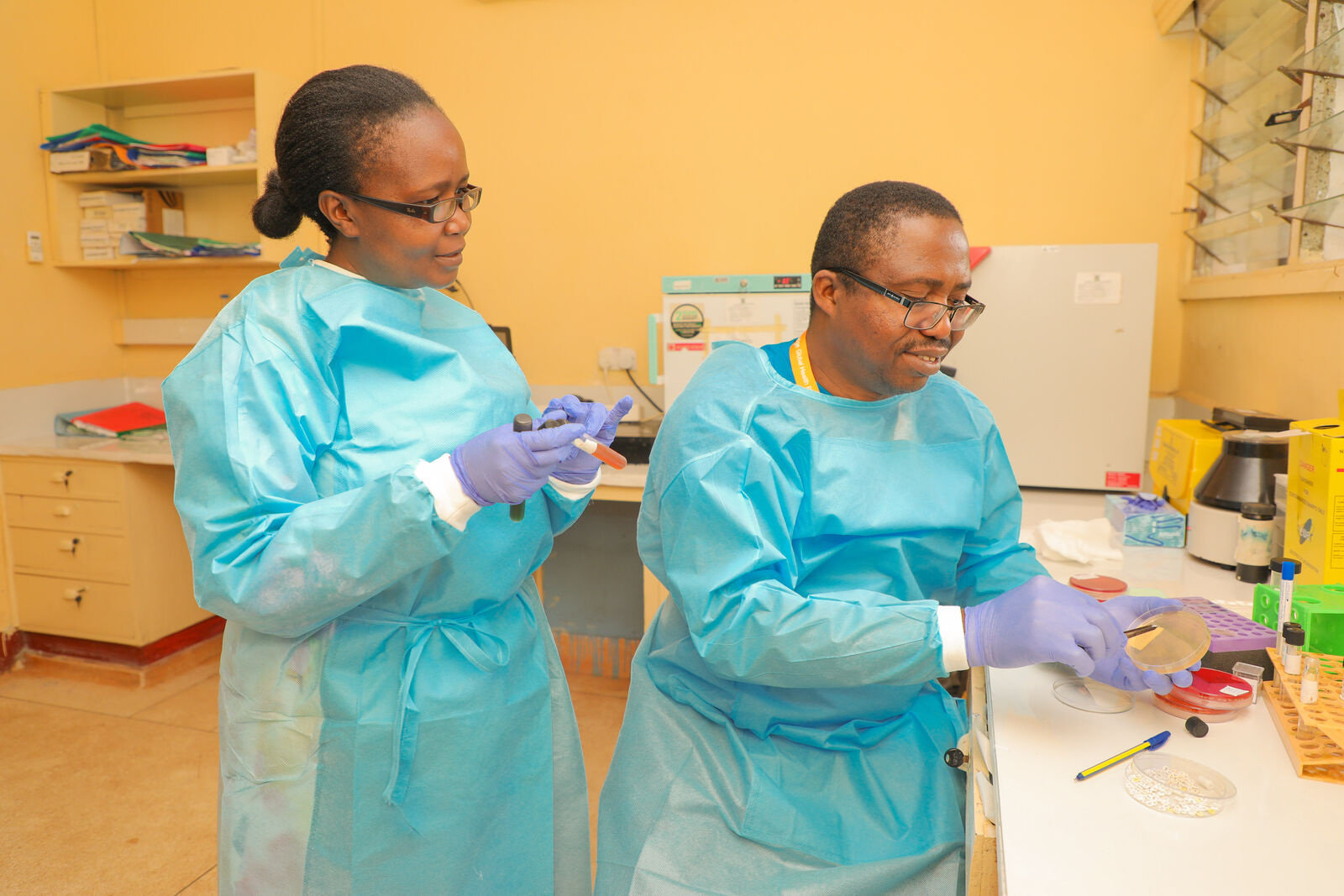
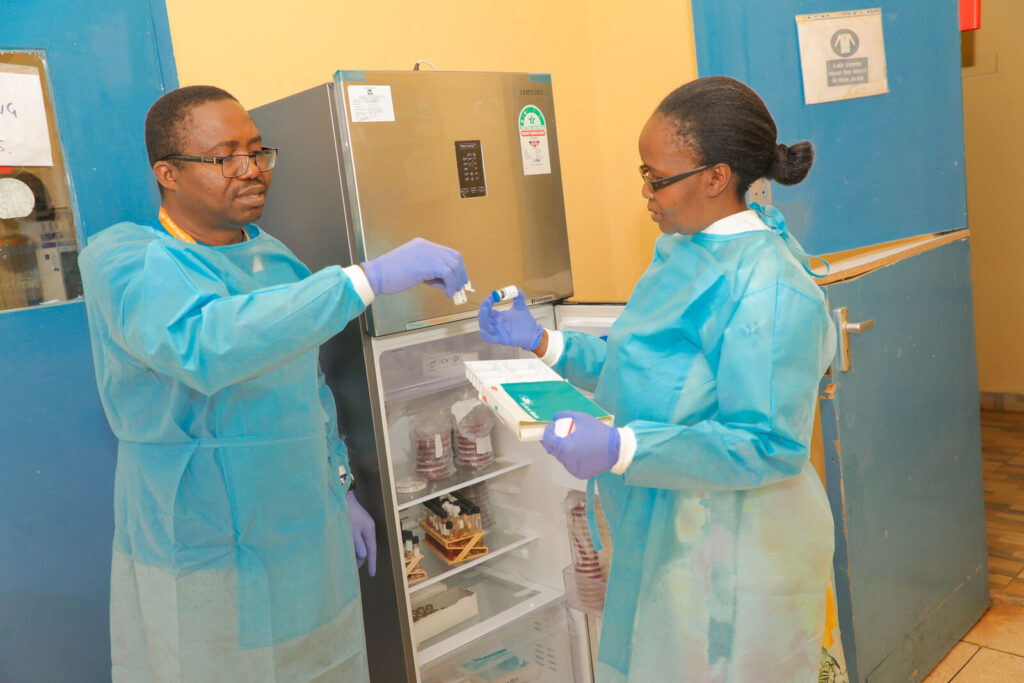
The project is unique in the sense that you are starting from almost point zero because of the lack of basic resources and protocols. Previous visits by other healthcare professionals have helped to lay some foundations that we could build on, especially with regards to antimicrobial stewardship (AMS) and infection prevention control (IPC).
During the month I was there, I reviewed lots of the hospital’s procedures, including the sample transport arrangements from smaller, regional healthcare facilities to KCTRH, and the laboratory protocols for sample processing for microbial identification and sensitivity testing. I also reviewed the Standard Operating Procedures (SOPs) and read the 2022/2023 Kakamega-Cambridge AMS & IPC visit reports. I carried out an audit of the turnaround time on microbiology sample results and reviewed the laboratory safety practices and priority needs.
Personally, the experience has taught me how to adapt and be flexible in a different culture where things are done differently from what I am used to. Also, the importance of thinking and planning advance, in anticipation of different scenarios.
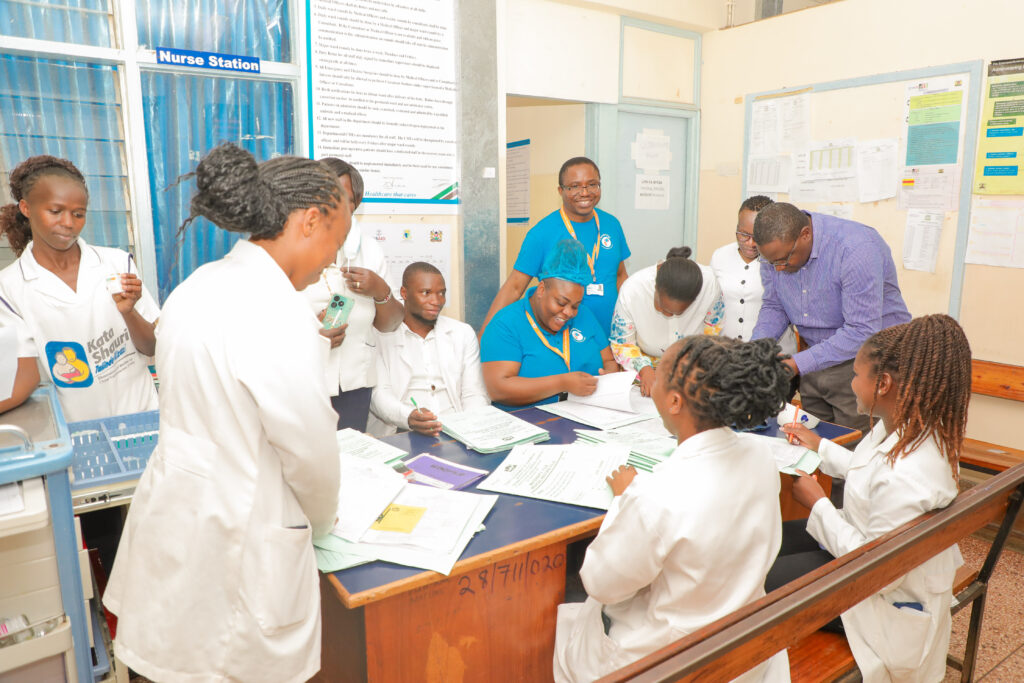
I offered my professional expertise, skills and experience to try to build local capacity in terms of knowledge transfer and improving local protocols. I offered practical advice on what the local team could do, or what they could adapt, using available resources to improve processes and protocols that will have a positive impact on quality of service and patient outcomes. For example, speeding up laboratory turnaround times and introducing measures to improve accuracy, which will aid prompt and effective therapeutic decisions and appropriate antimicrobial therapy.
I think the biggest impact I had was in demonstrating that the current turnaround times for microbiology results does not effectively support patient care and could be hugely improved by adjusting current protocols and changing staff attitudes towards the need for prompt diagnostic reports. Also, because funds are very scarce, that laboratory consumables should be prioritised to ensure that primary diagnostic reagents and supplies are always available in order not to compromise continuity of microbiology services.
The most challenging things for me were the lack of funding, even for very basic things like glass slides, petri dishes and microscope. It could also be challenging to engage staff at times. However, it was very rewarding to make friendships and connections with individuals across the wider project team.
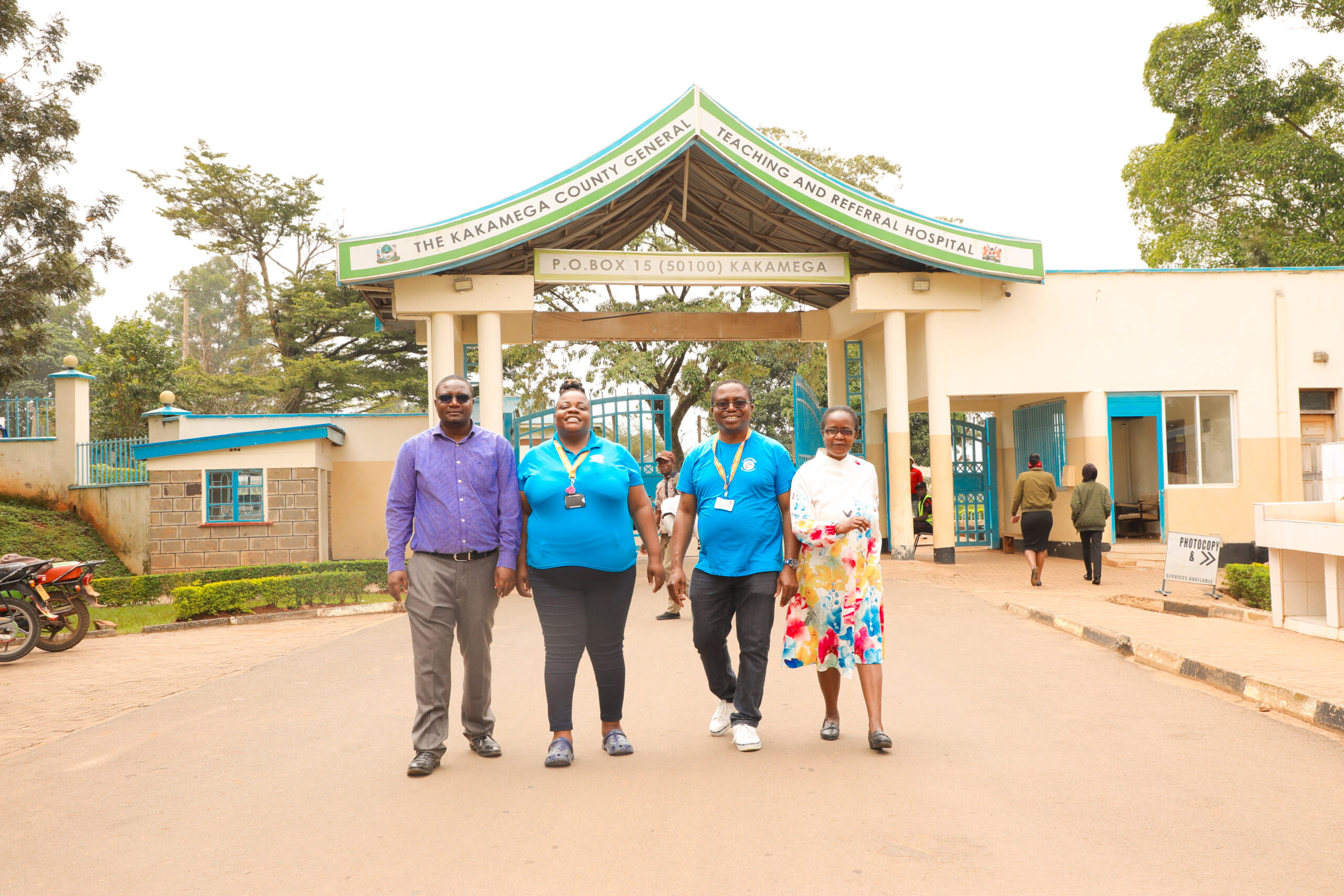
Professionally, the experience has enabled me to broaden my scope and understanding of global antimicrobial stewardship practices and the scale of the challenges to overcome. I have also come to better appreciate the need for interprofessional collaboration and the critical role each profession has to play to achieve global AMR/AMS objectives.
I hope that through my input and the project more broadly, we are starting to improve professional practices, for example through betterhand hygiene, prescribing behaviour and by removing barriers to effective IPC and AMS.
Another impact is the growing laboratory capacity, particularly the microbiology laboratory, to improve correct microbial identification and antimicrobial susceptibility testing. This will help improve sepsis diagnosis (through better blood culture sampling and processing), which will make microbial identification more accurate and improve antimicrobial prescribing
Back in the UK, as a result of my experience, I will be able to better support healthcare staff from LMIC countries who may not have had the resources or facilities to practice to international standards. Looking ahead, I would like to participate in more global health work in the future and share resources and offer training where possible.”
Find out more about the Kakamega-Cambridge Health Partnership, or contact us at info@cghp.org.uk
Return to blogs

